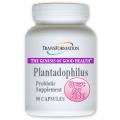
According to a 1996 National Health Interview Survey, about 3 million people in the U.S. have frequent constipation (less than 1 bowel movement per day). While there are many causes of constipation, a fundamental, but often overlooked, one is incomplete digestion of foods, which causes a build up of waste in your colon that can ferment and putrify. Thus, optimal digestion and elimination should be a priority in one’s wellness approach.
Most people know that if you eat processed, fried foods, including excess starches and sugar, and excessive amounts of salt, you are not doing your body any favors. Even if you have the requisite two or three daily bowel movements, your colon can remain clogged with old waste. As these undigested waste materials pass through the colon without assimilation, they leave a coating of slime on the inner walls of the colon, like plaster on a wall. With the passage of time, the coating will gradually increase in thickness, until there is only a narrow opening in the center. This in turn limits the colon's ability to absorb any additional nutrients or fluids, hinders peristaltic movement, and therefore increases the possibility of constipation.
The key is to help your body better digest these foods before they reach your colon. But how can you do this? Supplementing with digestive enzymes can help improve digestion, reduce toxicity in the intestines and colon, and thereby improve elimination and reduce occasional constipation. Everything we eat needs enzymes to not only digest foods into nutrients, vitamins and minerals, but to also deliver these nutrients to the cells. Food enzymes exist naturally in raw food, but when food is cooked, the high temperature of cooking destroys their natural enzymes. Even if we choose raw foods, the enzymes available are not adequate for human digestion of that food.
It is also true that our body makes digestive enzymes whose role it is to digest the cooked food that we eat. However, we cannot assume every digestive system functions at its peak all the time, nor are our food choices ideal 100% of the time. Overconsumption of processed or fast foods or even living a stressful lifestyle puts a greater demand on our digestive systems. Furthermore, the more we depend on our internally-produced digestive enzymes, the more stress we put on our body's systems and organs and the less time these systems have for rebuilding worn out, damaged cells and tissue and keeping our immune system strong.
Research shows that as we age, we lose the ability to produce enough digestive enzymes to help with complete digestion, which may be why many sufferers of constipation are older. And when toxicity builds up in our colon, this can put stress on other systems and hinder their ability to create the enzymes necessary for complete digestion. Enzymes play a key role in not just digestion, but also healthy elimination. Very simply, the colon is the sewage system of the body. The best of diets can be no better than the worst if the sewage system is clogged with a collection of waste.


Classic Formula! Single-strain, GI stable probiotic

 |